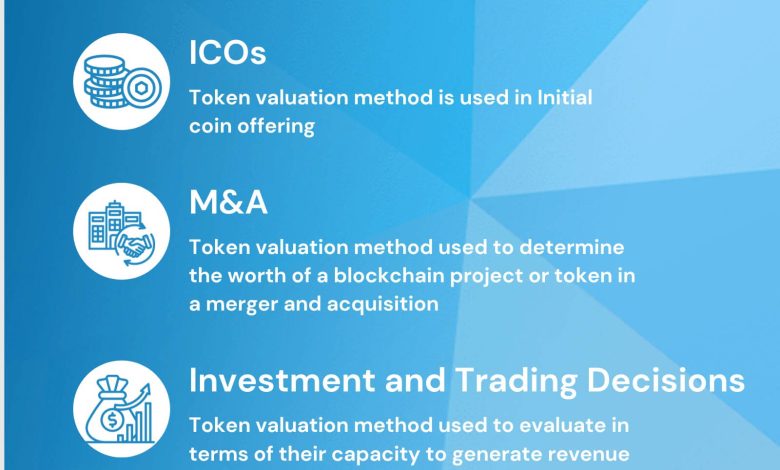Analyzing the Risks of Investing in ICOs and Token Sales

- Understanding the Basics of ICOs and Token Sales
- Exploring the Potential Rewards of Investing in ICOs
- Identifying the Key Risks Associated with Token Sales
- Tips for Mitigating Risks When Investing in ICOs
- Regulatory Challenges in the ICO and Token Sale Market
- Case Studies: Successes and Failures in ICO Investments
Understanding the Basics of ICOs and Token Sales
When it comes to understanding the basics of ICOs and token sales, it is essential to grasp the fundamental concepts behind these fundraising methods. An Initial Coin Offering (ICO) is a way for companies to raise capital by issuing tokens on a blockchain platform. These tokens can represent various assets or utilities within a project or platform. Investors can purchase these tokens during the ICO phase, hoping that their value will increase over time.
Token sales, on the other hand, are similar to ICOs but may have slight differences in terms of structure and purpose. Tokens are sold to investors as a way to raise funds for a project or platform, with the expectation that the tokens will have value in the future. It is crucial for investors to understand the differences between ICOs and token sales before deciding to participate in either.
Before investing in an ICO or token sale, it is essential to conduct thorough research on the project, team, and technology behind it. Understanding the whitepaper, which outlines the project’s goals, roadmap, and tokenomics, is crucial in making an informed investment decision. Additionally, investors should be aware of the risks involved in participating in ICOs and token sales, such as regulatory uncertainty, market volatility, and potential scams.
Exploring the Potential Rewards of Investing in ICOs
Investing in ICOs can potentially offer significant rewards for investors who are willing to take on the associated risks. By participating in an ICO, investors have the opportunity to get in on the ground floor of a new project or platform that has the potential to disrupt industries and generate substantial returns.
One of the key benefits of investing in ICOs is the potential for significant returns on investment. Many successful ICOs have seen their token values skyrocket in a short period, resulting in substantial profits for early investors. Additionally, investing in ICOs can provide investors with access to innovative projects and technologies that may not be available through traditional investment channels.
Furthermore, investing in ICOs can offer investors the opportunity to support projects and teams that they believe in. By participating in an ICO, investors can help fund the development of new technologies and platforms that have the potential to make a positive impact on the world. This can be a rewarding experience for investors who are passionate about supporting innovation and progress.
Overall, investing in ICOs can be a high-risk, high-reward endeavor that is not suitable for all investors. However, for those who are willing to do their due diligence and carefully evaluate the risks and potential rewards, participating in ICOs can be a lucrative investment opportunity that offers the chance to support innovative projects and technologies.
Identifying the Key Risks Associated with Token Sales
When it comes to identifying the key risks associated with token sales, it is crucial to conduct a thorough analysis before investing in an ICO. Some of the main risks to consider include:
- Regulatory risks: One of the biggest risks associated with token sales is the regulatory uncertainty surrounding ICOs. Different countries have varying regulations when it comes to cryptocurrency offerings, and investors need to be aware of the legal implications.
- Market volatility: The cryptocurrency market is known for its volatility, and token prices can fluctuate dramatically in a short period. Investors should be prepared for the possibility of significant price swings.
- Security risks: Token sales are often targeted by hackers looking to steal investors’ funds. Investors should carefully assess the security measures in place before participating in an ICO.
- Team risks: The success of an ICO often depends on the team behind the project. Investors should research the backgrounds and experience of the team members to assess the likelihood of success.
By identifying and understanding these risks, investors can make more informed decisions when it comes to participating in token sales. It is important to conduct thorough due diligence and seek professional advice before investing in an ICO to mitigate the potential risks involved.
Tips for Mitigating Risks When Investing in ICOs
Investing in ICOs can be a lucrative opportunity, but it also comes with its fair share of risks. To mitigate these risks and make more informed investment decisions, consider the following tips:
- Research the project thoroughly before investing. Look into the team behind the ICO, their experience, and track record in the industry.
- Assess the viability of the project and its potential for success. Evaluate the whitepaper, roadmap, and any available prototypes or demos.
- Consider the market demand for the project’s product or service. Analyze the competition and the unique selling proposition of the ICO.
- Understand the token economics of the project. Evaluate the token distribution, use cases, and potential for value appreciation.
- Look into the regulatory environment surrounding the ICO. Consider the legal implications and compliance requirements in the jurisdictions where the project operates.
- Diversify your investment portfolio to spread out risk. Avoid putting all your funds into a single ICO to minimize potential losses.
- Stay informed about market trends and developments in the blockchain and cryptocurrency space. Keep up to date with news and updates related to the ICO you are considering.
- Consider seeking advice from financial advisors or experts in the field. Consult with professionals who can provide valuable insights and guidance on your investment decisions.
By following these tips and conducting thorough due diligence, you can reduce the risks associated with investing in ICOs and increase your chances of making successful investments in the blockchain space. Remember to stay vigilant and informed to make the most of this exciting but volatile market.
Regulatory Challenges in the ICO and Token Sale Market
One of the major challenges facing the ICO and token sale market is the lack of clear regulations. This regulatory uncertainty can lead to potential risks for investors, as they may not have the necessary protections in place. Governments around the world are still grappling with how to classify and regulate ICOs and token sales, which can create a complex and ever-changing landscape for those looking to invest in these projects.
Without clear guidelines from regulators, investors may be left vulnerable to scams, fraud, and other malicious activities in the market. Additionally, the lack of regulatory oversight can make it difficult for investors to conduct proper due diligence on projects, as they may not have access to all the information they need to make informed decisions.
Furthermore, the regulatory challenges in the ICO and token sale market can also impact the overall legitimacy and credibility of these projects. Without proper regulations in place, it can be challenging for investors to trust that the projects they are investing in are legitimate and will deliver on their promises. This lack of trust can ultimately hinder the growth and development of the ICO and token sale market as a whole.
Case Studies: Successes and Failures in ICO Investments
When it comes to ICO investments, there have been numerous case studies that showcase both successes and failures in this space. It is essential for investors to analyze these case studies to understand the risks involved in participating in token sales.
One success story in the world of ICO investments is the Ethereum project. Ethereum conducted an ICO in 2014, raising over $18 million. The platform has since become one of the most popular blockchain networks for decentralized applications and smart contracts.
On the other hand, there have been failures in the ICO space as well. One notable example is the DAO project, which raised over $150 million in 2016 but was ultimately hacked, leading to the loss of a significant amount of investor funds.
These case studies highlight the importance of conducting thorough due diligence before investing in an ICO. Investors should carefully assess the team behind the project, the technology being developed, and the market potential of the token being offered.



